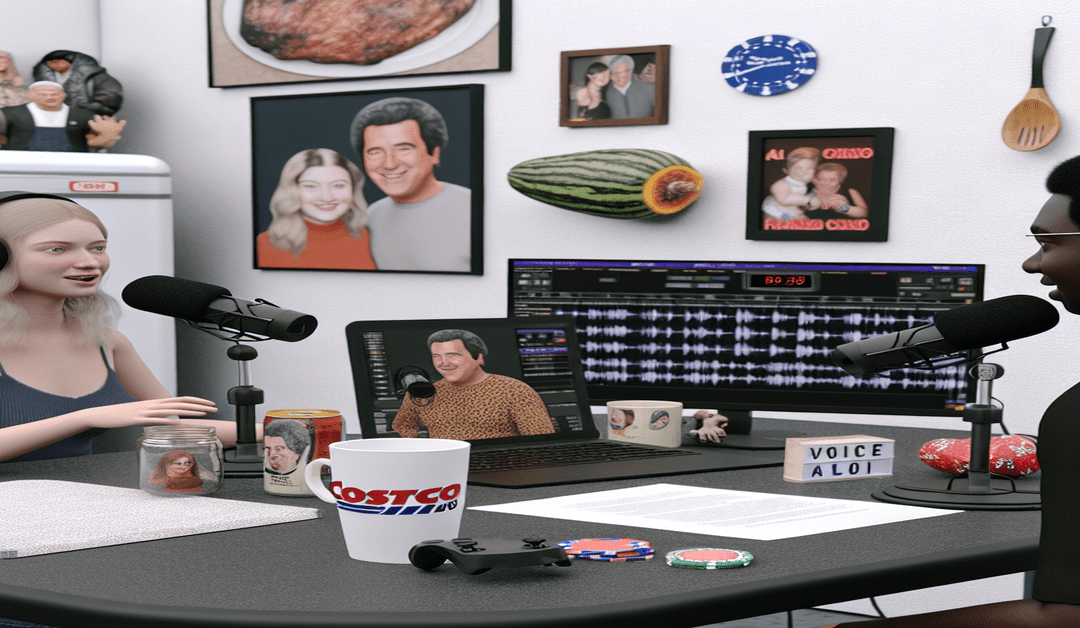The Shocking Reality of AI Voice Cloning: What Anna and Raven’s Experiment Reveals
In a recent segment on “The Anna & Raven Show,” hosts Anna and Raven delved into the world of artificial intelligence (AI) with a shocking experiment. The duo asked their producer, Justin, to use an AI voice cloning program to recreate their voices, and the results were nothing short of astonishing. This experiment sheds light on the incredible advancements in AI technology and raises important questions about its potential implications.
The Power of AI Voice Cloning
AI voice cloning, also known as voice synthesis or voice replication, is a technology that allows computers to generate human-like speech by analyzing and mimicking the characteristics of a person’s voice. This technology has made significant strides in recent years, with advanced algorithms and neural networks enabling the creation of highly realistic voice clones.
The experiment conducted by Anna and Raven showcases the remarkable accuracy and naturalness of AI-generated voices. By providing a sample of their own voices to the AI program, Justin was able to create voice clones that were virtually indistinguishable from the real thing. This demonstrates the power of AI to capture the unique nuances, inflections, and tones of individual voices.
Implications and Ethical Considerations
While the results of Anna and Raven’s experiment are undeniably impressive, they also raise important ethical questions about the use of AI voice cloning technology. On one hand, this technology has the potential to revolutionize various industries, such as entertainment, education, and accessibility.
Imagine the possibilities: actors could lend their voices to characters without ever stepping into a recording booth, educational content could be personalized with the voices of beloved teachers, and individuals with speech impairments could communicate using their own unique voices. The applications are vast and exciting.
However, the misuse of AI voice cloning technology also poses significant risks. In the wrong hands, it could be used for deception, fraud, or even political manipulation. The ability to create convincing voice clones of public figures or loved ones raises concerns about privacy, consent, and the potential for exploitation.
The Need for Responsible Development and Regulation
As AI voice cloning technology continues to advance, it is crucial that we address these ethical concerns head-on. Developers and researchers must prioritize responsible development practices, ensuring that the technology is used for the benefit of society while minimizing the potential for harm.
This requires a collaborative effort between technologists, policymakers, and ethicists to establish guidelines and regulations that govern the use of AI voice cloning. Transparency, accountability, and user consent should be at the forefront of these discussions, ensuring that individuals have control over their voice data and are aware of how it is being used.
The Future of AI Voice Cloning
Despite the challenges and ethical considerations, the future of AI voice cloning is undeniably exciting. As the technology continues to evolve, we can expect to see even more realistic and natural-sounding voice clones, opening up new possibilities for personalized content, creative expression, and accessibility.
However, it is important that we approach this technology with a balanced perspective, recognizing both its potential benefits and risks. By fostering open dialogue, collaboration, and responsible development, we can harness the power of AI voice cloning to create a more inclusive and innovative future while safeguarding the rights and privacy of individuals.
Conclusion
Anna and Raven’s experiment with AI voice cloning serves as a compelling reminder of the incredible advancements in artificial intelligence and the need for responsible development and regulation. As we navigate this new frontier, it is essential that we engage in thoughtful discussions, consider the ethical implications, and work together to shape a future where AI technology is used for the greater good.
What are your thoughts on AI voice cloning? Have you encountered any examples of this technology in action? Share your experiences and opinions in the comments below, and don’t forget to like and share this post to spread awareness about this fascinating and important topic.
#AIVoiceCloning #EthicalAI #ArtificialIntelligence
-> Original article and inspiration provided by Star 99.9
-> Connect with one of our AI Strategists today at ReviewAgent.ai

